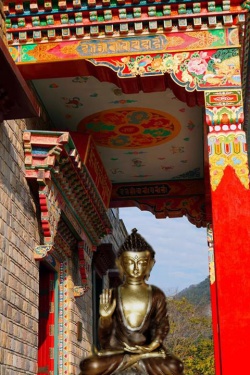Two hundred and fifty precepts
two hundred and fifty precepts
二百五十戒 (Jpn nihyaku-gojikkai )
Rules of discipline to be observed by fully ordained monks of Hinayana Buddhism. They are set forth in The Fourfold Rules of Discipline and consist of eight groups: (1) Four prohibitions. The prohibition of the four major, or unpardonable, offenses: killing, theft, sexual relations, and lying. Lying refers particularly to claiming a level of insight or understanding that one has not in fact attained. A monk who commits any one of these offenses can be automatically expelled from the Buddhist Order. (2) Thirteen major prohibitions. Monks who violate these may be divested of membership in the Buddhist Order for a certain period. (3) Two indeterminate prohibitions. The prohibition of two kinds of offenses by monks: being alone with a woman in the open and being alone with a woman in seclusion. They are called indeterminate because the punishment for violating them varies according to the nature of, or circumstances surrounding, the act. (4) Thirty standards that prohibit monks from storing things they are not allowed to possess or storing things they are allowed to possess either beyond the prescribed amount or by prohibited means. These offenses are considered light and can be pardoned if the violators confess their offense and relinquish their improper possessions to the Order. Refusal to confess is regarded as a cause for falling into the three evil paths. (5) Ninety standards, the violation of which requires confession to other monks. They deal with light offenses, such as lying about an insignificant matter, killing an insect, and duplicity with the intention of causing discord between two monks. (6) Four standards that concern the receiving of donated meals. For example, a monk is prohibited from receiving an offering of a meal from a nun who is not his relative. The breaking of these rules requires that one confess to another monk. (7) One hundred standards, which concern such matters as meals, dress, preaching, and daily behavior. Violations of these constitute light offenses. Those who commit such offenses unconsciously are required to repent in their hearts, and those who have done so consciously are required to confess to another monk. (8) Seven rules for settling disputes within the Buddhist Order. As an example, when monks are involved in a dispute, both parties must appear before the other monks, who arbitrate the disagreement.
Source
www.sgilibrary.org [[Category: Ten precepts
]]
